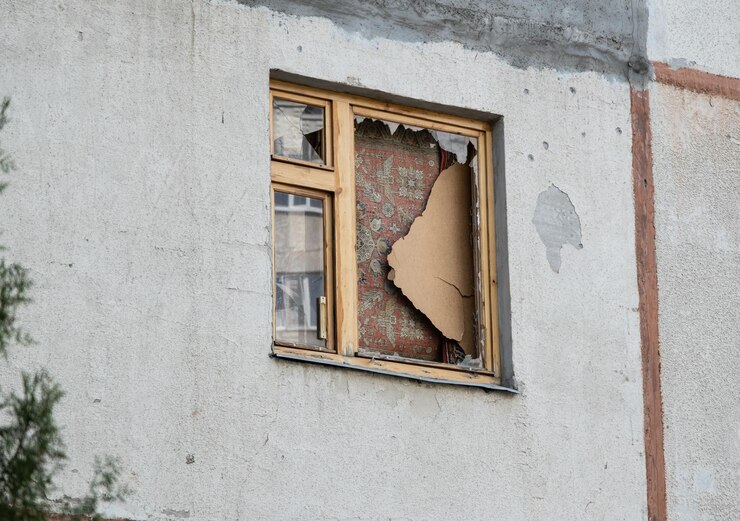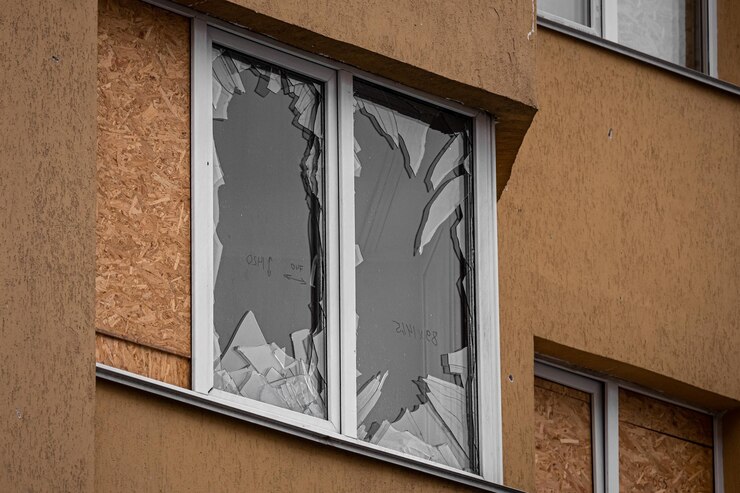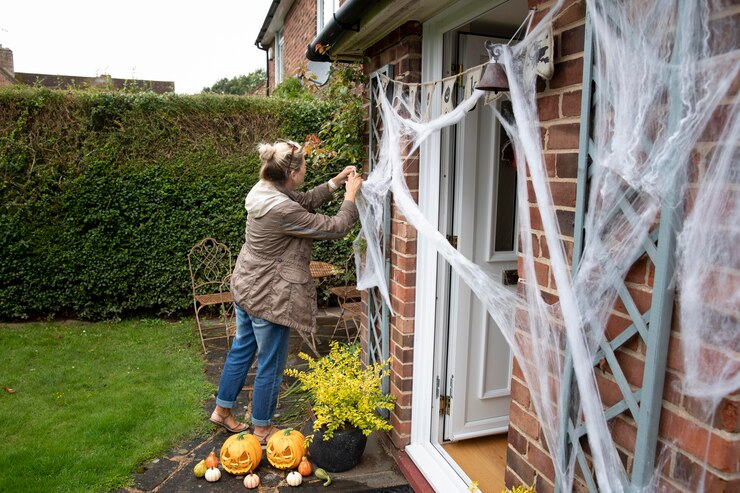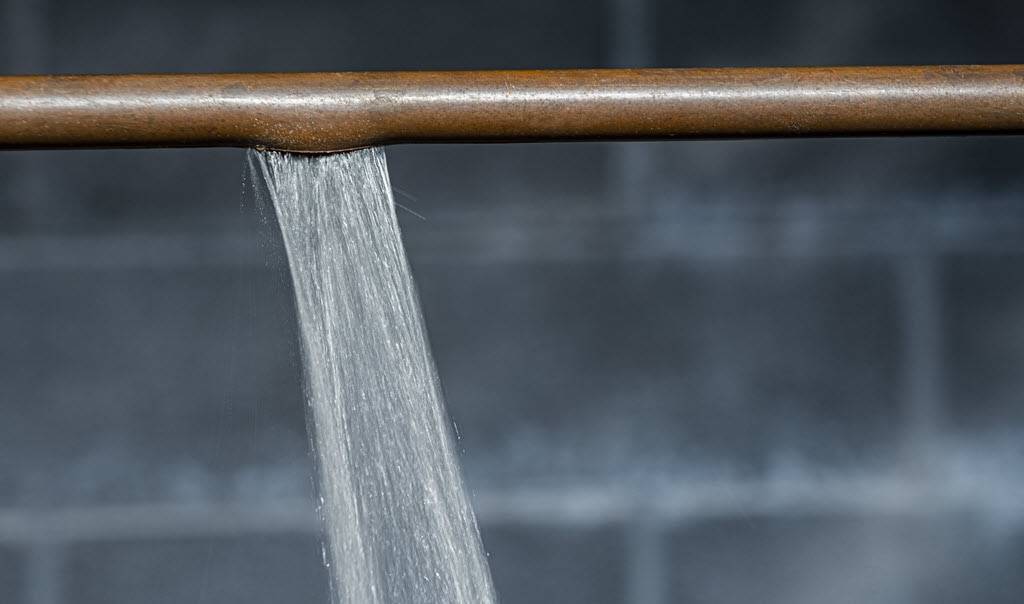Home insurance typically covers broken windows in the event of accidents or certain covered perils. In addition to providing financial protection for the structure of your home, home insurance policies often include coverage for damages to windows caused by incidents such as storms, vandalism, or accidental breakage.
This coverage helps homeowners replace or repair broken windows and ensures peace of mind in the face of unexpected expenses. Whether it’s a shattered pane from a fallen tree limb or a cracked window due to a break-in, having home insurance can offer the necessary assistance to address these situations swiftly and effectively.

What Is Home Insurance?
Definition And Purpose Of Home Insurance
Home insurance refers to a type of insurance policy that provides coverage for your property and belongings in the event of certain unforeseen circumstances or damages. It serves as protection against financial loss should any damage occur to your home or its contents.
Here are some key points to understand about home insurance:
- Financial protection: Home insurance acts as a safeguard by providing financial protection against damages or losses caused by covered perils such as fire, theft, vandalism, or natural disasters.
- Liability coverage: Home insurance policies often include liability coverage, which means that if someone is injured on your property, the policy can cover legal fees and medical expenses.
- Peace of mind: Having home insurance can give you peace of mind, knowing that you have a safety net in place if the unexpected happens.
- Loan requirement: If you have a mortgage on your home, your lender will typically require you to have homeowner’s insurance as a condition of the loan.
- Personal belongings: Home insurance policies also cover damage or loss of personal belongings such as furniture, appliances, clothing, and electronics.
Types Of Coverage Typically Offered By Home Insurance Policies
- Dwelling coverage: This type of coverage insures the structure of your home itself, including the walls, roof, foundation, and attached structures like garages or decks.
- Personal property coverage: Personal property coverage protects your belongings within your home. This includes furniture, electronics, appliances, clothing, and other items.
- Liability coverage: Liability coverage helps protect you financially if someone is injured on your property and sues you for damages.
- Additional living expenses coverage: If your home becomes uninhabitable due to a covered loss, such as a fire or a storm, this coverage can help with additional living expenses like hotel bills or temporary rentals.
- Medical payments coverage: This coverage pays for medical expenses if a guest is injured on your property, regardless of who is at fault.
- Other structures coverage: This covers other structures on your property that are separate from your main dwelling, such as sheds, fences, or detached garages.
Understanding the different types of coverage offered by home insurance policies is crucial in ensuring that you have appropriate protection for your home, belongings, and liabilities. Remember to carefully review and compare policy options to find the one that best suits your needs.
Understanding Property Damage Coverage
Home insurance provides coverage for various types of property damage, including broken windows. Understanding the details of property damage coverage is essential to ensure you have the right protection in place. Here, we will explain property damage coverage, the different types of property damage covered, and common exclusions and limitations to be aware of.
Explanation Of Property Damage Coverage:
- Property damage coverage refers to the protection provided by home insurance for any damage caused to your property, including your windows.
- This coverage is typically included in both homeowners insurance and renters insurance policies.
- It helps you recover the costs associated with repairing or replacing damaged windows.
Coverage For Different Types Of Property Damage:
- Fire damage: If your windows are damaged due to a fire, your home insurance policy should cover the costs of repairing or replacing them.
- Weather-related damage: Home insurance typically covers damage caused by extreme weather events such as storms, hail, or wind. Broken windows resulting from these incidents are usually covered.
- Vandalism and theft: If your windows are broken due to acts of vandalism or as a result of a break-in, your home insurance policy should provide coverage for the repairs.
- Accidental damage: If you accidentally break a window, your home insurance might offer coverage, depending on the specific policy terms and conditions.
Common Exclusions And Limitations For Property Damage Coverage:
- Normal wear and tear: Home insurance policies generally do not cover damage caused by normal wear and tear, which includes aging or deterioration of your windows over time.
- Lack of maintenance: If your windows are damaged because you failed to maintain them properly, your home insurance policy might not cover the repairs.
- Flood damage: Most standard home insurance policies do not cover flood damage, so if your windows are broken due to a flood, it may not be covered. You would need separate flood insurance to have this coverage.
- Deductibles: Keep in mind that you will typically have a deductible to pay before your home insurance coverage kicks in. Check your policy to understand your deductible amount.
Understanding property damage coverage is crucial to ensure you have the right level of protection for your home or rental property. Review your home insurance policy carefully to know the specific terms, conditions, and limits of your coverage. In the event of any property damage, such as broken windows, contact your insurance provider promptly to initiate the claims process.
Does Home Insurance Cover Broken Windows?
Review Of Typical Coverage For Broken Windows:
- Most home insurance policies provide coverage for broken windows as part of their standard property damage coverage.
- Coverage typically includes accidental damage to windows caused by events such as storms, vandalism, or accidents.
- It’s important to review your policy documents to determine the specific coverage provided by your insurance provider.
- The coverage limit will vary depending on your policy, so make sure you understand the maximum amount that will be reimbursed for broken windows.
Factors That Determine Coverage For Broken Windows:
- The cause of the window breakage plays a role in determining coverage. Accidental damage, such as a fallen tree branch during a storm, is usually covered. However, intentional damage or negligence may not be.
- Some policies have exclusions for certain types of windows, such as glass block windows or custom-designed windows. Make sure you are aware of any limitations or restrictions in your policy.
- The age and condition of the windows may also affect coverage. Older, deteriorating windows may be considered wear and tear and not be covered.
- Certain policies may offer optional endorsements or add-ons that provide additional coverage for broken windows. These can include coverage for decorative glass or special features.
What To Do If You Have Broken Windows And Want To File A Claim:
- Start by documenting the damage. Take photos of the broken windows and any related damage to your property.
- Check your policy for specific guidelines on filing a claim. It may require you to report the damage promptly or provide an estimate from a professional contractor.
- Contact your insurance provider to initiate the claims process. They will guide you through the necessary steps and provide you with the required forms.
- Provide all the necessary documentation, including photos, estimates, and any other requested information.
- Keep records of all communication and documentation related to your claim for future reference.
- Understand that the insurance company may send an adjuster to assess the damage and determine the amount of coverage you are eligible for.
- Once your claim is approved, you can proceed with repairs or replacement of the broken windows. Your insurance provider may require you to use their preferred vendors.
Remember, every insurance policy is different, so it’s essential to review your specific coverage and consult with your insurance provider for accurate information regarding broken window claims. Follow the appropriate procedures and provide all required documentation to ensure a smooth claims process.
Additional Considerations For Broken Windows Coverage
Home insurance is an essential safeguard for homeowners, protecting them financially against unexpected damages and losses. But what about broken windows? Are they covered under typical home insurance policies? In this section, we will explore additional considerations for broken windows coverage to help you understand your options and make informed decisions.
Impact Of Deductible On Claims For Broken Windows:
- Deductibles play a vital role in determining the coverage for broken windows. Here’s what you need to know:
- Higher deductibles often lead to lower monthly premiums but require homeowners to pay more out of pocket before insurance kicks in.
- If the cost of repairing or replacing a broken window falls below your deductible amount, you may need to cover the expenses yourself.
- It’s crucial to evaluate the potential cost of broken windows repairs and compare it against your deductible when choosing a policy.
Coverage Options For Vandalism And Intentional Damage:
- Vandalism and intentional damage are unfortunate incidents that can lead to broken windows. Here are some coverage options to consider:
- Some home insurance policies may explicitly include coverage for vandalism and intentional damage, providing financial protection if your windows get broken as a result.
- Check your policy’s terms and conditions to determine if these incidents are covered or if you need to add an additional endorsement to your policy.
- Keep in mind that intentional damage caused by a member of your household may not be covered under standard policies.
Importance Of Reviewing And Updating Home Insurance Policies:
- To ensure your home insurance adequately covers broken windows, it’s important to regularly review and update your policy. Here’s why:
- Home values and repair costs change over time, so your coverage should reflect the current market rates.
- Reinforcing or upgrading your windows may influence your insurance rates and coverage, as insurance providers may offer discounts for added security measures.
- Life events such as renovations, changing occupancy, or acquiring valuable possessions should prompt a policy review to guarantee you have the right coverage in place.
Remember, each insurance policy is unique, and coverage for broken windows may vary. It’s crucial to carefully read and understand your policy’s terms, discuss your concerns with your insurance provider, and make any necessary adjustments to protect your home and peace of mind.
Frequently Asked Questions Of Does Home Insurance Cover Broken Windows
Does Home Insurance Cover Broken Windows?
Yes, most home insurance policies cover broken windows as long as the damage was caused by a covered peril, such as a storm or vandalism. However, it’s important to review your specific policy to understand the coverage limits and any deductibles that may apply.
Are Accidental Window Breakages Covered By Home Insurance?
Accidental window breakages are typically covered by home insurance policies, but it’s important to review the terms and conditions of your specific policy. Some policies may have exclusions or limitations for certain types of accidents, so it’s always a good idea to contact your insurance provider for clarification.
What If The Broken Window Is Due To My Negligence?
If the broken window is due to negligence, such as accidentally hitting it with a baseball, your home insurance may still cover the damage. However, it’s important to note that repeat claims for negligence-related incidents could lead to higher premiums or a non-renewal of your policy.
It’s always best to exercise caution to avoid such situations.
Can I File A Claim For Broken Windows Caused By A Break-In?
Yes, if your windows are broken due to a break-in or burglary, your home insurance policy should cover the damage. This typically falls under the category of theft or vandalism coverage. Make sure to report the incident to the police and provide any necessary documentation when filing your claim.
Are There Any Limits On The Coverage For Broken Windows?
Yes, there may be limits on the coverage for broken windows. Some policies have a separate limit for glass or window-related damage, which may be lower than the overall coverage for the structure of your home. Review your policy or contact your insurance provider to understand the specific limits that apply.
Will My Insurance Cover The Full Cost Of Replacing Broken Windows?
The coverage for replacing broken windows under your home insurance policy will depend on the terms and conditions of your specific policy. Some policies may cover the full cost of replacement, while others may have a deductible that you will need to pay out of pocket.
Review your policy or consult with your insurance provider for more information.
Conclusion
It is important to understand the coverage options provided by your home insurance policy when it comes to broken windows. While standard homeowner’s insurance policies typically cover accidental breakage, such as a stray baseball causing a shattered window, they may not cover certain incidents, such as intentionally broken windows or damage due to wear and tear.
It is crucial to review your policy and communicate with your insurance provider to ensure you have appropriate coverage in place. Additionally, taking preventative measures, such as reinforcing windows with security film or installing protective shutters, can help reduce the risk of broken windows and potentially lower your insurance premiums.
Remember, each insurance policy is unique, so it is important to familiarize yourself with the specifics of your coverage to ensure complete protection and peace of mind for your home.




